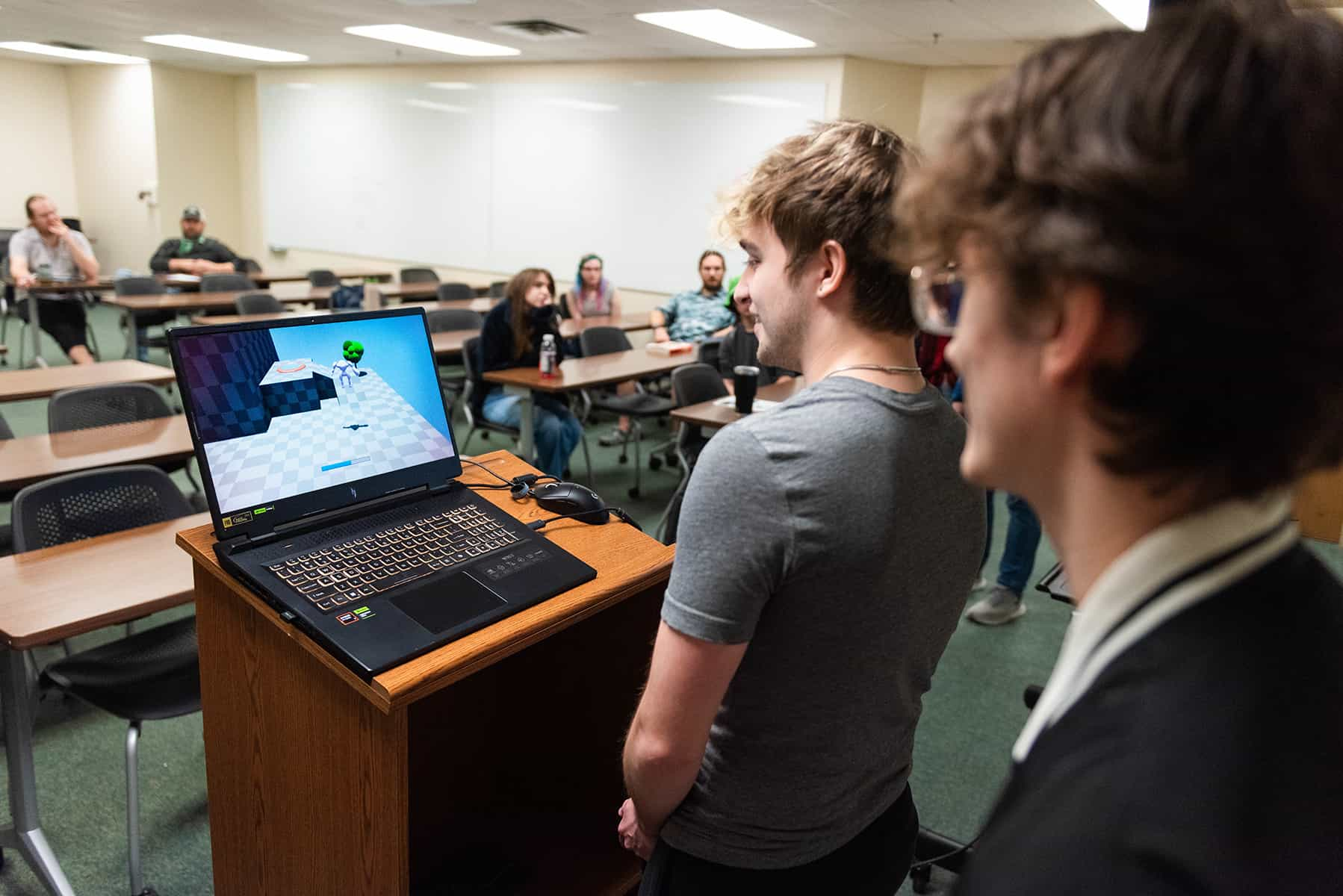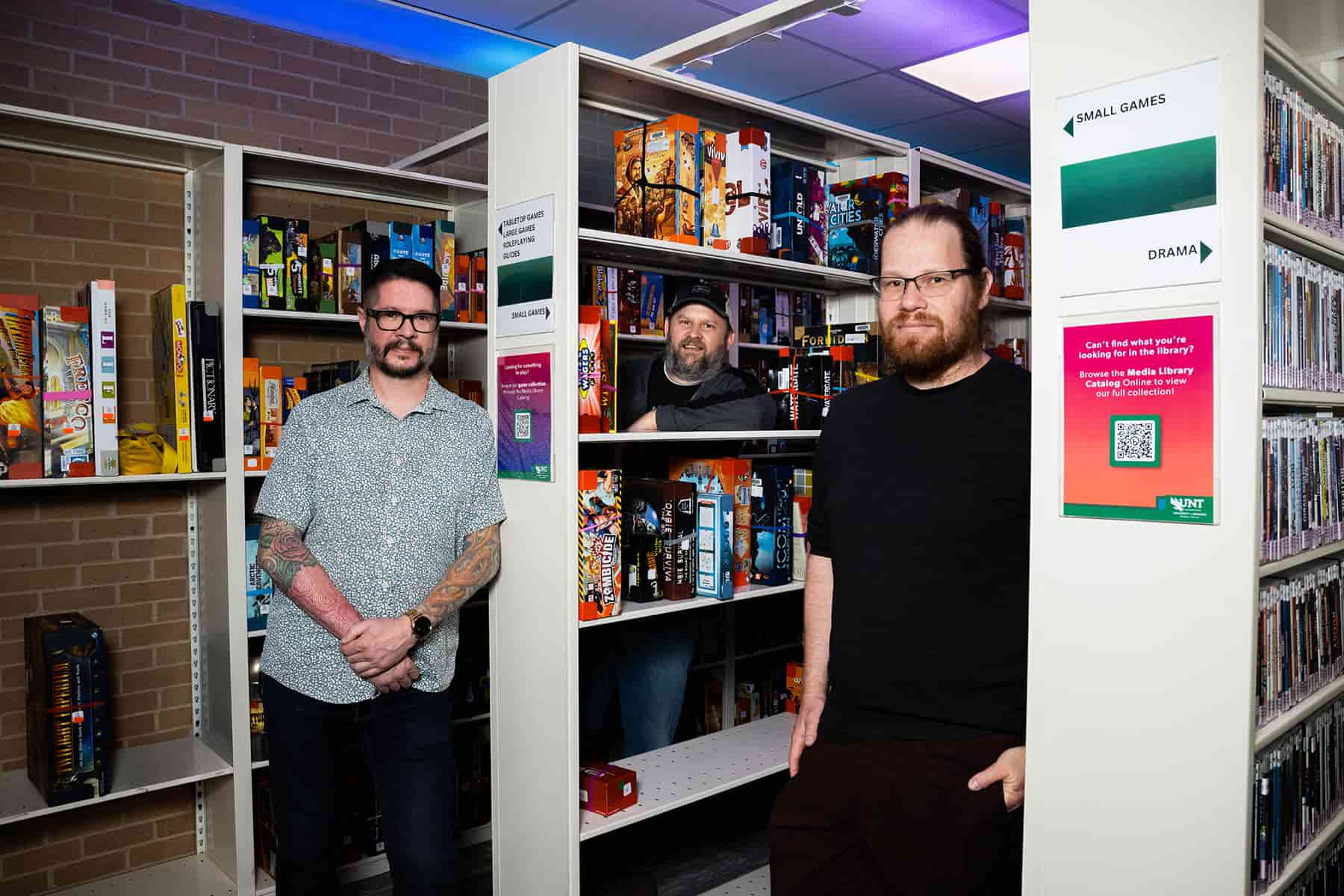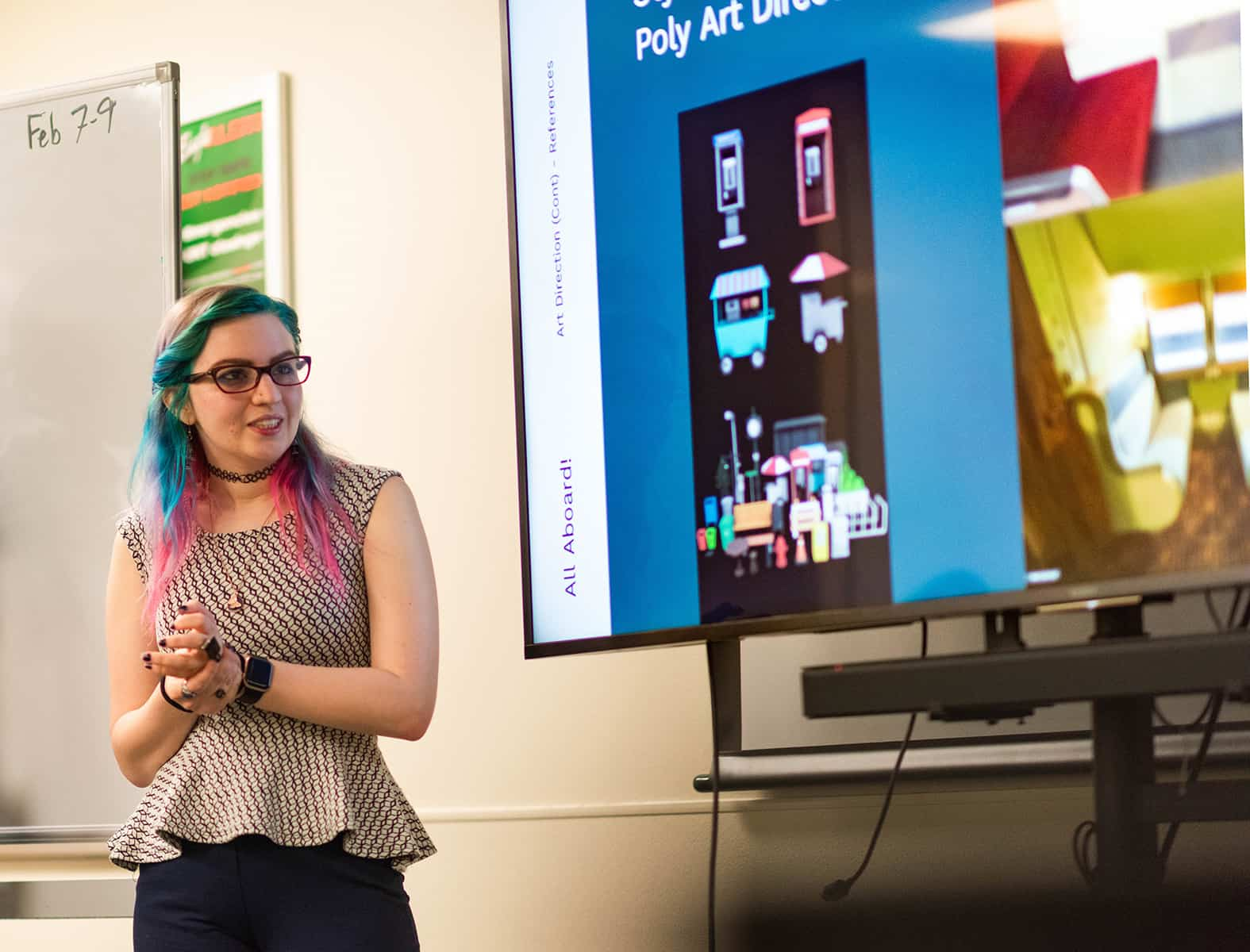
DENTON (UNT), Texas — Students at the University of North Texas can now enroll in a new game studies and design degree program that offers individualized
coursework and career-focused concentrations. The program’s first cohort begins in
the Fall 2025 semester.
With faculty from across disciplines, the new game studies and design major, housed in the Department of Media Arts, gives students a leg up in a competitive industry. Students complete a standard
set of core classes before selecting a concentration for their degree — but the core
curriculum ensures some experience across all areas of specialization.
“To make a game feel good, you need people who wear different hats — engineers, artists,
narrative writers, coders,” said Gabriel Olson, program director and professor of
practice in video games. “We want every student in the major to gain some ability
in all aspects of development, from script writing to a little bit of coding.”
The major’s core curriculum includes a foundational survey course as well as classes
covering digital content and animation, game programming and design, narrative storytelling
and production. Students can then customize their degrees by choosing from several
concentrations: narrative design, available now; programming and game studies, launching
in 2026; and art and design, planned for 2027.
“We want our students to learn those core concepts, but they’re also able to focus
on one aspect of game development that most interests them,” Olson said.

While the major is new, UNT has offered its game studies and design certificate for several years. Building a major with the existing certificate as a blueprint was a collaborative effort between faculty in UNT’s Departments of Media Arts, English and Computer Science and Engineering. The process also involved developing brand-new classes, such as visual programming and game production.
Stephen Mandiberg, senior lecturer in media industries and video games, said the curriculum
was designed with every possible career pathway in mind.
“We thought about every job opportunity our students could pursue — whether it's in
the industry or in academia — and worked from there,” Mandiberg said. “The curriculum
is intended to be interdisciplinary; it asks them to work across teams.”
Faculty also designed classes to mirror real-world game development. A script writing
course functions as a writers’ room, while a two-semester capstone simulates a full
production pipeline, complete with structured workflow, collaboration and sprint reviews
with faculty and industry professionals in the Dallas-Fort Worth area. By graduation,
every student in the major will have contributed to a published, playable game.
“We’re trying to recreate what you’ll walk into when you start a job at a game studio,”
said Darin Bradley, assistant professor of practice in English, who teaches the major’s
narrative design and script writing courses.
Jyrell Athan Go (’24), a nontraditional student with six years of industry experience,
worked with faculty to design a custom integrated studies degree with a games focus.
With their help, he created a special topics course and led the Scrappy Studios Game
Development Club through a full production pipeline, building a portfolio to showcase
his work.
Just months after graduating, Go launched his own game studio, Final Croak LLC. He
credits UNT’s interdisciplinary approach for giving him a competitive edge.
“Most universities prepare their game studies students for a narrow pool of jobs,
many of which are in programming,” Go said. “UNT gives its students the flexibility
to explore everything that’s available in the industry, and that’s something I honestly
didn’t see in any other university.”

Lillian Merrell, a senior majoring in integrated studies with a game design concentration,
completed the capstone for the game studies and design certificate. Her team created
Twilight Train, a “cozy game” focused on open-ended gameplay and storytelling.
“Narrative design is my bread and butter, so working on a game that involves a lot
of storytelling really allowed my strengths to shine,” Merrell said.
Although Merrell will graduate before the official launch of the new major, she said
the certificate has prepared her to enter the industry.
“They’re really trying to make sure no matter what part of a game you work on, you
understand how all the pieces fit together and how the process works,” Merrell said.